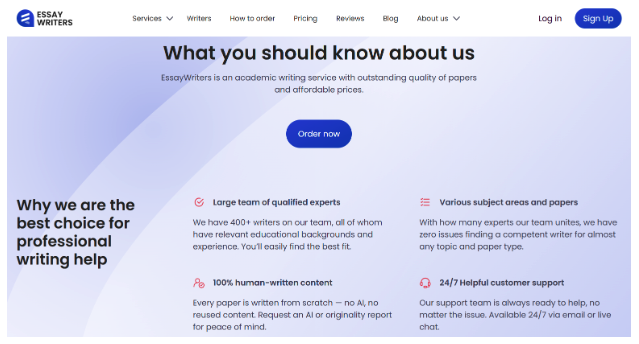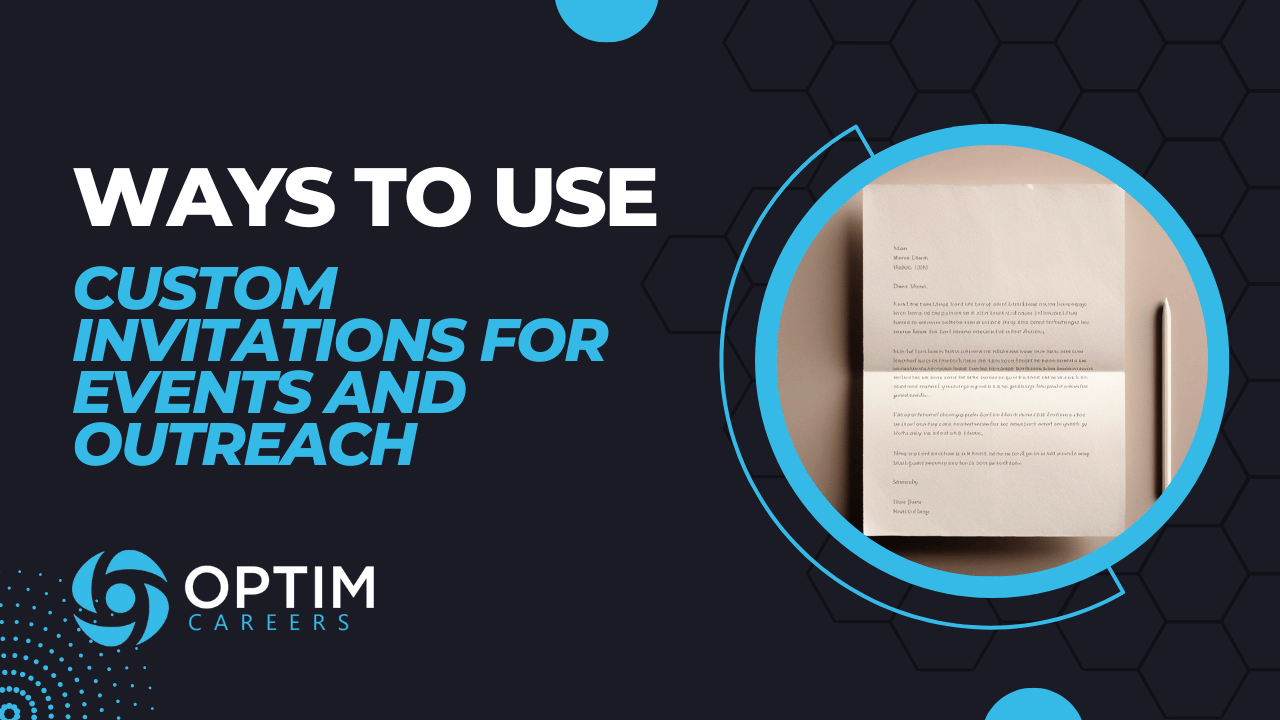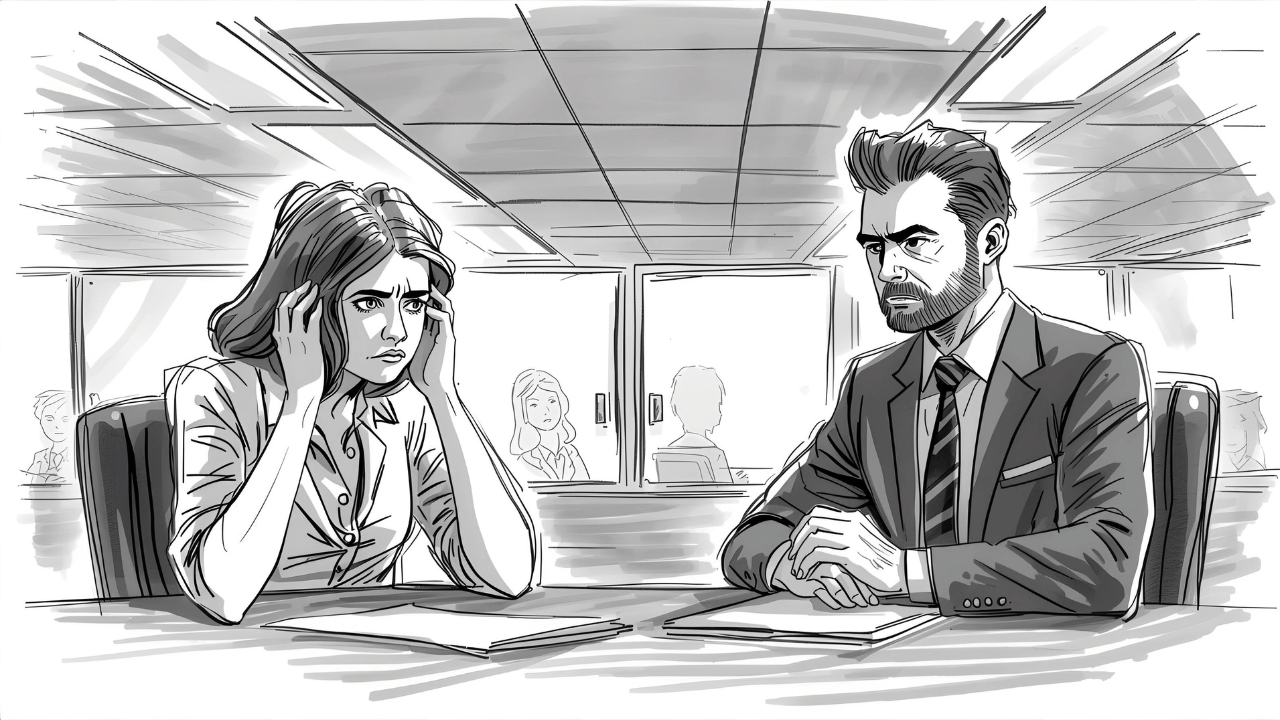Communication Coach [Roundup and Helpful Tips to Select One]
This week I had the pleasure of sitting down with several communications coaches to discuss the nuances of their work and discover how professionals can find the right coach for them. Many people don’t grasp the benefits that some communication coaches can offer. They’re not just for CEOs and high-level executives preparing for big speeches or securing their next round of fundraising.
Everyone can benefit from communications coaching. But that doesn’t mean every coach is right for your goals. Today, I’m sharing some of my conversations with five coaches to help you understand the value that they can add to your career and how you can go about vetting coaches whom you may be considering.
In today’s article, I’ll cover:
The difference between communication coaches, public speaking coaches, and confidence coaches.
Who can benefit from communication coaching?
Six ways to evaluate coaches before you hire them.
Six questions you can ask during consultations to vet coaches
A list of four coaches that I recommend working with.
And some alternative options if you can’t afford coaching.
What Is a Communication Coach
Simply put, a communication coach works with you to develop communication skills. This may be for relationship management, confidence building, personal growth, public speaking, or career development.
Because communication is a skill that often requires practice, communication coaching usually takes place over several sessions, oftentimes over several months.
What is the Difference Between a Communications Coach, a Public Speaking Coach, and a Confidence Coach
The distinction between communications, public speaking, and confidence coaching is blurry but significant. While it’s possible (and likely) to have all three elements covered when working with a communications coach, some coaches focus on one area more than others.
A communication coach can help you with public speaking and presentations, but also with high-stakes conversations, relationship building, and networking.
A public speaking coach can help you get over anxiety by systematically working with you. They will help you set goals, and focus on your content as well as your delivery.
A confidence coach on the other hand will focus more on identifying areas where you lack confidence and working with you to develop strategies that build self-esteem. These coaches may not focus on teaching you how to open and close a presentation and there is often much less structure involved in this type of coaching.
All three are considered communication coaches, but each may focus on helping you in slightly different ways. I’ve never worked with a communication coach who didn’t impact all three areas in some form, but it’s important to find people who will focus on what you need the most help with.
Jeff’s Thoughts
In my view, the distinction between these three is significant. I’ll often touch on aspects of public speaking. Some clients need help giving quarterly presentations at their company, while others simply want to speak up at a meeting or happy hour.
As for confidence coaching, I’m not particularly fond of the term, “confidence.” I prefer competence. When working with me, building competence is the goal and as you become more competent with communication, confidence naturally follows.
Communication coaching is all about actionable steps from point A to point B, focusing on effort and quick results regardless of whether you’re giving a speech or trying to convince others in a small meeting about your ideas.
Ben’s Thoughts
Communication coaching as a practice is rooted in empowering clients to find their own growth path. However, there are differences in the types of coaching.
Public speaking, in particular, is a learned skill so there is a greater element of training and practice in developing those skills.
Coaching for confidence is more internally focused because true confidence needs to be felt. Barriers to confidence tend to be internal. Communication coaching involves focusing on both internal factors and external behavior.
Becoming clear about what you want to convey requires introspection, while the act of mutual communication involves skills in writing, speaking, and listening effectively. You don’t get one without the others.
Who Uses Communication Coaching
Communication coaching isn’t just for C-Suite executives, it’s for anyone who wants to improve their ability to influence, build relationships, and communicate more clearly. Good communication is one of the most valuable skills you can build because it transcends everything you do in life, both in your professional and personal spheres.
Managers
Whether you’ve been newly promoted or you’ve been leading groups of people for years, communication coaching can take your management abilities to the next level. Learning how to communicate better can help managers better understand their team, improve conflict resolution, elicit better feedback, improve retention, and ultimately improve the chances that other people will want you to lead them.
Improving your leadership communication skills is essential to running high-performing teams.
When Looking for a Promotion
I learned early in my career that doing great work often isn’t enough to secure a promotion and more money. If you don’t know how to communicate, it doesn’t matter if you’re the best at your job because no one will recognize it. If you want to climb the ladder, a communication coach can shortcut that process for you.
High-Stakes Meetings
Perhaps you’re an engineer who has developed a new product and now your company wants you to present it to a group of executives or investors. Or you may be a CFO who is trying to fundraise a Series C round of investment. Regardless of who you are, if you’re preparing for a make-it-or-break-it type of meeting, a communications coach is often worth the investment.
Many times these professionals can help you with the content you will deliver and building executive presence.
When Looking for a New Job
If you’ve been looking for a new job, you may feel like you’re in high-stakes meetings every time you interview. Sometimes an executive interview coach is the best option, but many times a communication coach can also help you improve your message and delivery. Christy Howard, a communication coach I spoke with, specializes in interview communication skills for those who may be doubting themselves from a layoff or other traumatic life event.
Early and Mid-Career Professionals in Technical Spaces
Many people with technical backgrounds such as software development, medicine, or accounting spend much of their early careers and time at the university developing the technical skills to do their jobs. But when it comes to communication, many have invested little time into developing that skill. These people often seek out communication coaches to help them balance technical skill development with communication-related skills to elevate their careers and social life.
Disabilities
Many people struggle with speech disabilities or other conditions that naturally put them at a disadvantage when it comes to communicating. But that doesn’t mean you can’t communicate effectively if you have ADHD or another condition. One coach I spoke with, Ben Tobin, is a communication coach who specializes in working with professionals with ADHD. Ben himself has been diagnosed with ADHD. A communication coach can often help these individuals improve their ability to speak clearly and effectively.
Sales
Many sales professionals hire a communication coach at some point in their lifetimes. Communication is the backbone of any sales role. It’s required to develop relationships with prospects and clients, negotiate deals, and more. Patricia Fripp is one of the most well-known sales communication coaches and I sat down with her this week to discuss the importance of communication coaching for this segment of professionals. For a group of people whose livelihoods and quality of life depend on communication, persuasion, and negotiation, working with the right communication coach can literally increase your earnings this year.
Improving Your Relationships
Some of us engage in communication skills training to simply improve our relationships. Your communication goals don’t have to be work-related.
How to Evaluate Communications Coaches
This was one of the questions I was most curious about when I spoke to a handful of well-known coaches in this space. How do you know if a coach is right for you, let alone skilled enough to help you? Based on my conversations and experiences with coaches, here is how I would vet them.
Free Consultation
Because working with a communication coach is like working with a therapist, it’s important to get some one-on-one time with them before making any investment. If a coach doesn’t offer a free consultation, that’s a non-starter for me.
But beyond offering to speak with you for free, the consultation discussion also matters. Yes, you’ll want to ask questions, but the consultation shouldn’t feel like a sales call. Rather it should feel like your first session. This way you can get a feel for the coach’s communication style and what it would be like to work with them.
Half of the equation for success is simply whether you and this coach can work together well. A good coach will even tell you when they don’t think it’s a fit for the two of you.
Avoid Guarantees
A couple of coaches brought this up and I couldn’t agree more. As a former recruiter and coach, I too know that no one can promise you results because the coach doesn’t do the work for you. The deliverables are up to you. The coach is simply there to guide you to the result you want and help show you the way. You still have to put in the work and effort to get there.
Anyone who offers a guarantee doesn’t understand this concept and is trying to take your money.
Do Certifications Matter
To no surprise, the coaching community was split on this. Those with a certification felt strongly that those certifications were beneficial and those without brushed them off. Here’s what I gathered from my conversations.
There is no specific certification for communication coaching; however, there are organizations like the International Coaching Federation (ICF) that train and certify coaches. It seems that everyone and their mother is a life coach these days and many have an ICF certification.
If you’re working with a coach who has only been practicing for two years or less, I prefer them to have a certification. Coaching in itself is a skill and takes practice.
Just think of a company where they promoted someone to management because they were really great at their job. And then it turns out they’re terrible at managing and leading others. That’s because being good at your job doesn’t make you a great manager. Those are two different skills. It’s the same with coaching.
If you’re working with a coach who has several years of experience, a background in communications, and accolades to go with it, I don’t put much stock in a certification. For example, someone like Patricia Fripp who has given over 3,500 live presentations and coached sales teams to win millions of dollars doesn’t need a certification for me to know she’s the real deal. I can watch her on stage and know that she knows her stuff.
Experience
I would never hire someone who is successful because they can make me successful. When hiring a coach, you want someone who has done what you want to do and can show evidence of that.
For example, Ben Tobin has spent 20 years in the tech space and has overcome ADHD himself. If I had ADHD or worked in tech, I would naturally turn to him for communication coaching because he’s been there and done it. He’s conquered and coached others through the problems that I am facing.
If I was in sales and needed to improve my communication before giving the presentation of my life, I would turn to Patricia Fripp who I’ve seen build sales teams and present herself. She’s been there and done what I want to do.
If I had a technical job such as software engineering or accounting, I would turn to someone like Jeff Callahan who spent years as a Corporate Trainer working with these types of teams before opening up his own communication coaching practice.
If I was a job seeker who needed confidence coaching after a layoff, I would consider turning to someone like Christy Howard who has herself navigated these struggles and now works with others to overcome them.
The bottom line is, if the coach hasn’t done what you are trying to do, how are they going to help you? How are they going to relate to your struggles?
Reviews
While I always read reviews with a grain of salt, they are worth considering. Keep in mind that everyone is going to put their most glowing reviews on their website, and typically only the most dissatisfied customers ever post third-party reviews. I always try to judge reviews through these lenses. Someone may be bitter about something that is no fault of the coach and post a review on Yelp or a similar site. On the other hand, if reviews are on a coach’s website, they were probably handpicked from the most successful clients.
If you’re going to look at reviews and testimonials, the important things to look for are:
If the people giving those reviews have the same challenge you have.
If the people giving the reviews have similar backgrounds to yourself.
If you can hear in the other person’s words what worked for them. In other words, the reviews are in audio or video format. It’s easy to hide behind a negative text review and it’s easy to fake a positive one.
Keep in mind that most people don’t want others to know that they looked for or hired a speech coach, so references and reviews can be hard to come by. I still think that the best way to vet a coach is to speak with them and get a feel for their expertise and communication style.
Comfortability
Patricia Fripp put it best when she said, there are plenty of good speech coaches out there but you have to feel a relationship with your coach. A coach isn’t a therapist, but the relationship is close to the same.
Not only does the coach need to have the expertise you need, but you also need to feel that they are truly interested in helping you. You’ll be working closely with this person and you’ll need to open up about vulnerable things you may not tell everyone else.
This is why free consultations are so important. You have to determine if it feels like a safe space and they understand you. Trust your gut on this one.
What Questions Should You Ask a Coach Before Signing Up
Here are some of the questions that I, and the coaches I spoke with, recommend you use to help get a better sense of what each coach can offer you.
I’m concerned about (X). [Even if you don’t have the words to express your concerns or worries, do your best to discuss it.]
What is your coaching philosophy? (or) What would working with you look like?
What will it take to be successful as a client of yours?
Can you tell me about past clients with similar challenges as mine and how you’ve helped them?
What should I expect working with you? What would my commitment look like in terms of time and practice?
How many speeches have you given and what type?
Keep in mind that good coaches will be able to answer your questions. Great coaches will be able to ask you even better questions. The best coaches don’t want to spend their entire consultation with you talking about their accolade, but rather finding out specifically what they can do to help you.
Communication Coaches That I Recommend
Jeff Callahan
Who Does Jeff Work With?
Jeff helps overthinkers enhance their communication skills, conversation skills, people skills, and social confidence. He’s been doing this since 2014 and has stacked up quite the track record of success, not only in his own life but also for his clients. Most of Jeff’s clients have technical backgrounds, although he does work with the occasional actor or creative.
What Can You Expect Working With Jeff?
Jeff’s private coaching program is a six-month program designed to cover everything you need for improved conversation skills, enhanced storytelling abilities, and the capacity to go deeper in social situations. He offers both one-on-one coaching and group coaching and they are designed for people who want to improve their communication overall.
Jeff offers all of his private coaching clients access to his on-demand video lessons as well so you can prepare before sessions. Your sessions are then recorded so you can relisten and revisit what you’ve learned as you practice the principles in your work and life. He’s even added some AI-powered tools to his program.
One thing that distinguishes Jeff from many coaches is that he will set clear expectations with you before you begin. He expects clients to dedicate time each day to record their communication wins, reflect on what’s going well and what can be improved, and carve out time for real-life practice opportunities.
You can check out Jeff’s one-on-one coaching program here. Mention this blog and you’ll get an additional free coaching session.
Or if you’re looking for group coaching, check that out here. Jeff has given our readers a special code, “Cole” which will save you 5%.
Patricia Fripp
Who Does Patricia Work With?
Patricia helps people with presentations, speeches, and important conversations. If you’re trying to build confidence at team meetings, Patricia probably isn’t your coach. But if you are giving a presentation, are constantly involved in high-stakes sales meetings, or are involved in raising money for your company, she’s the only person I would turn to.
Patricia is the master of presentations. If you have a presentation coming up, there is no one better qualified to help you deliver it. Patricia herself has given over 3,500 live presentations, many you can view for yourself on YouTube. She’s coached brilliant, but modest, executives and sales leaders to go on and win millions of dollars for their companies.
What Can You Expect Working With Patricia?
On your first call with her (before you buy anything) you can expect Patricia to treat you as if you’ve already hired her. She likes to treat it like a free session which helps you determine if she’s the right fit for you. There’s nothing cookie-cutter about her coaching. She’ll ask you how long you want to work on your presentation, figure out your starting point, and set you up on a plan for success.
Patricia is also focused on building your confidence and helping you set the right expectations for yourself. If you’re an engineer giving a speech because a product you developed is now worth $40M, that’s an impressive skill. Patricia makes sure you understand that your skills are simply different from her skills and that you can’t expect to give the same great speech overnight as someone like her who’s only been speaking for the past 40 years. But she’ll help you get there with practice.
In fact, don’t be surprised if she tells you that what you’ve accomplished is probably more difficult than trying to be a great speaker. While she may not be a “confidence coach”, you’re sure to get a dose of confidence while working with her. It’s just who she is.
What I love about Patricia is that she doesn’t just focus on how you deliver your presentations or key information at a high-stakes meeting. She also understands the importance of helping you with your message. Until you have a good speech, you can’t work on delivery. A bad speech delivered well is still a bad speech.
You can learn more about Patricia’s 1:1 coaching here.
Ben Tobin, ACC
Who Does Ben Work With?
Ben works with people in the tech industry and adults with ADHD. He focuses on effective communication in professional contexts, whether that is on the job or interviewing for a new job. Ben has had to deal with ADHD his entire life and he has spent the last 20 years in the tech industry, so I can think of no better person to coach you in these circumstances.
What Can You Expect Working With Ben?
You can expect Ben to help you get clear about your needs and where you want to focus. Ben will take the time to learn about your values and preferred style of communication. Ben is an expert at developing a communications plan and strategy based on your goals, values, and style of communication. You can expect him to ask a lot of thoughtful questions designed to help you open up to new ideas.
Ben will help you take baby steps by making small lasting changes over time, rather than trying to change too much all at once.
You can learn more about Ben’s communication coaching here.
Christy Howard
Who Does Christy Work With?
Christy is a confidence coach who works with job seekers anticipating layoffs, adults returning to the workforce, and middle-aged women who have gone through a divorce.
What Can You Expect Working With Christy?
Instead of operating a communications program like most coaches, Christy prides herself on offering ad-hoc, hour-long sessions where you can sign up for as many or as few as you need. You start with one hour-long session and can choose to continue more. During sessions, Christy is great at asking questions that spur thought and require each individual to look inside themselves for answers which then helps build confidence.
You can expect exercises to be assigned to you as well as recorded conversations so you can listen and see what you may not yet believe about yourself because many times we are our own worst critics.
Expect rawness and empathy as Christy guides you on a journey of self-discovery, empowerment, and growth. Christy can help you get out of your head and take off the mask you’re wearing for others approval.
You can learn more about Christy’s confidence empowerment sessions here.
Coaching Options For Those Who Can’t Afford It
I get it, sometimes we need help and we simply aren’t in a place to pay for coaching services. While I do think communication coaching is an investment, not a cost, if you truly have no money to divert into coaching, here are some options you can explore.
Improv Classes
Most people think of stand-up comedians when they think of improv, but they can be an affordable way to practice communication and confidence-boosting skills. Improv classes are group settings and if you get a good teacher, most of the learning will be done by playing games and doing exercises together. You will rarely have to do something alone, so it’s often a safe place to practice skills.
You may be scared to sign up for one, but most people who have, have told me that they had loads of fun at their classes. There’s nothing better than learning disguised as fun. And no, you don’t have to be funny to be comfortable and successful. In fact, most of the people there won’t be funny at all.
Acting Classes
I can still remember driving all around and taking my brother to acting classes. I figured they’d be great for building communication skills. I mean, that is what acting is all about. But until recently, I never considered them as a communication training option. That is until one Director of Product told me how he sent his entire team to acting classes and admitted that he saw improvement in their communication abilities afterward.
Train the Trainers
If you need help with presenting, start reading everything you can about train the trainers. It is a framework for preparing trainers to train others and you’ll find all kinds of insights that will also help you communicate better.
Yoodli
Yoodli is an AI-powered speech coaching application that you can download on your computer. It connects to your calendar and can run in the background during any video meetings. During the meetings, it can give you nudges that help you sound more confident. It’s capable of analyzing pacing, filler words, monologues, talk time, and more.
It’s no substitute for a coach, but if you need just a little help, it’s a neat app. You can even try it for free!
You can learn more about Yoodli here.
Communication Coach Recommended Reading
How to Implement Delegative Leadership
Cole Sperry has been a recruiter and resume writer since 2015, working with tens of thousands of job seekers, and hundreds of employers. Today Cole runs a botique advisory firm consulting with dozens of recruiting firms and is the Managing Editor at OptimCareers.com.













